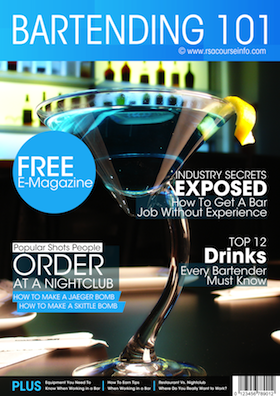Alcohol and Its Risks on Health
For the past several years, the world has witnessed numerous injuries, accidents and deaths due to alcohol intoxication or excessive consumption of alcohol. In the United States, approximately 79,000 deaths were associated with alcohol abuse, and 2.3 million years of potential life were lost per year. In 2005, several alcohol-related conditions have brought at least 1.6 million consumers in the hospital.
Standard Measurement of Alcohol
Alcohol drinks are referred as “standard drink” if it contains no more than 0.6 ounces of pure alcohol. This amount of pure alcohol is present in 5 ounces of wine, 1.5 ounces of distilled spirits or liquor (80 proofs) such as vodka, rum, whiskey and gin, 8 ounces of malt liquor and 12 ounces of regular beer or wine cooler. Having more than the amount presented above is not considered as a standard drink.
Patterns of Alcohol Consumption
Binge Drinking –
- Women – at least 4 drinks in a single occasion
- Men – at least 5 drinks in a single occasion
Heavy Drinking –
- Women – at least 1 drink per day
- Men – at least 2 drinks per day
Excessive Drinking – is a combination of heavy drinking and binge drinking.
Persons who involves in binge drinking are neither alcohol nor alcohol dependent.
The Dietary Guidelines encourages consumers to drink alcoholic beverages and liquor in moderation. Drinking moderately is having no more than 1 drink per day in women and no more than 2 drinks per day for men. Nevertheless, persons with the following conditions should never drink any form of alcoholic beverage or liquor:
- Pregnant women and those who are trying to become pregnant
- Taking OTC or prescribed medicines because possible adverse reactions may occur when the medicine is mixed with alcohol
- 21 years and below
- Undergoing treatment for alcoholism or if they aren’t able to control the amount of alcohol they consume
- Diagnosed with a medical condition that might complicate with alcohol
- Drives and performs activities that would require coordination, skill and alertness.
Responsible Service of Alcohol
Alcohol is part of the Australian way of life, tradition and culture. It is almost impossible for them to celebrate events and special occasions without the consumption of alcoholic beverages or liquor. However, they are also aware that the short and long term consumption of alcohol can increase their health risks and could let them develop alcohol-related health conditions.
For the government of Australia to protect its society from harm, threats and dangers of excessive alcohol consumption, it imposed a law that required individuals involved in the service, delivery and supply of alcohol to obtain a Responsible Service of Alcohol (RSA) certificate. RSA certificates are obtained after successful completion of the RSA course. RSA course is a training program that educates its participants about the important facts regarding alcohol, how to prevent alcohol intoxication among consumers and patrons, how to deal with intoxicated persons, how to identify minors and the legal laws they should follow at all times. RSA course can be completed through face-to-face training provided by reputable training providers all across Australia and it can also be completed online.
If one aims to work as a bartender in Australia, or to venture in the alcohol industry, an RSA course certificate is a legal document they must comply with.
Immediate Health Risks
Excessive consumption of alcohol can immediately cause effects that could increase one’s risk from harmful health conditions and situations. Binge drinking is most likely to cause these effects, and it includes the following:
- Unexpected accidents such as traffic injuries, burns, drowning, falls and sometimes, firearm injuries.
- Vulgar sexual behaviours, such as unprotected sex, premarital sex, sex with multiple partners and sexual assault. Most of the time, these risky sexual behaviours often lead to unintended conditions, pregnancy at an early age and sexually transmitted disease.
- Violence, including child abuse, intimate partner maltreatment. Studies have shown that 35% of victims of violence report that their offenders were under the influence of alcoholic beverages. It is also the substance mostly abused by parents which then leads to child maltreatment and neglect cases.
- Alcohol poisoning. This is an emergency situation that needs immediate medical attention. The increased alcohol levels in the body suppressed the function of the central nervous system which causes loss of consciousness, low blood pressure and body temperature, coma, respiratory depression and even death.
- Among pregnant women, miscarriage and stillbirth. Also, cases of physical and mental birth defects that can last throughout the child’s lifetime.
Long Term Health Risks
Long periods of excessive alcohol consumption can cause a person to develop neurological impairments, social problems and chronic diseases. These include the following:
- Neurological impairments, such as dementia, stroke and neuropathy
- Cardiovascular problems, myocardial infarction, atrial fibrillation, hypertension and cardiomyopathy
- Social problems, unemployment, poor productivity, family problems
- Psychiatric problems, depression, anxiety and suicide
- Cancer of the mouth, breast, colon, liver, throat and esophagus. Generally, increased consumption of alcohol also increases one risk of cancer.
- Liver conditions, such as Cirrhosis, alcoholic hepatitis
- Gastrointestinal problems, pancreatitis and gastritis













Leave a Reply